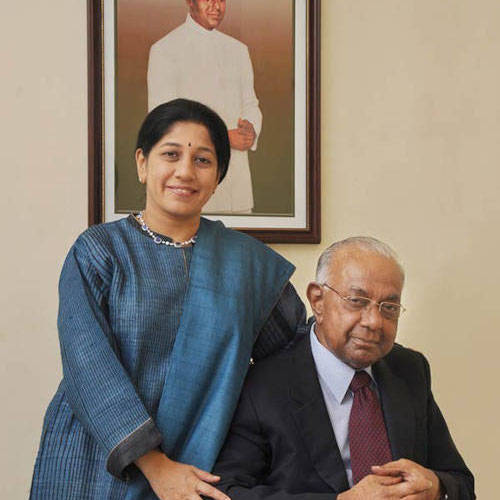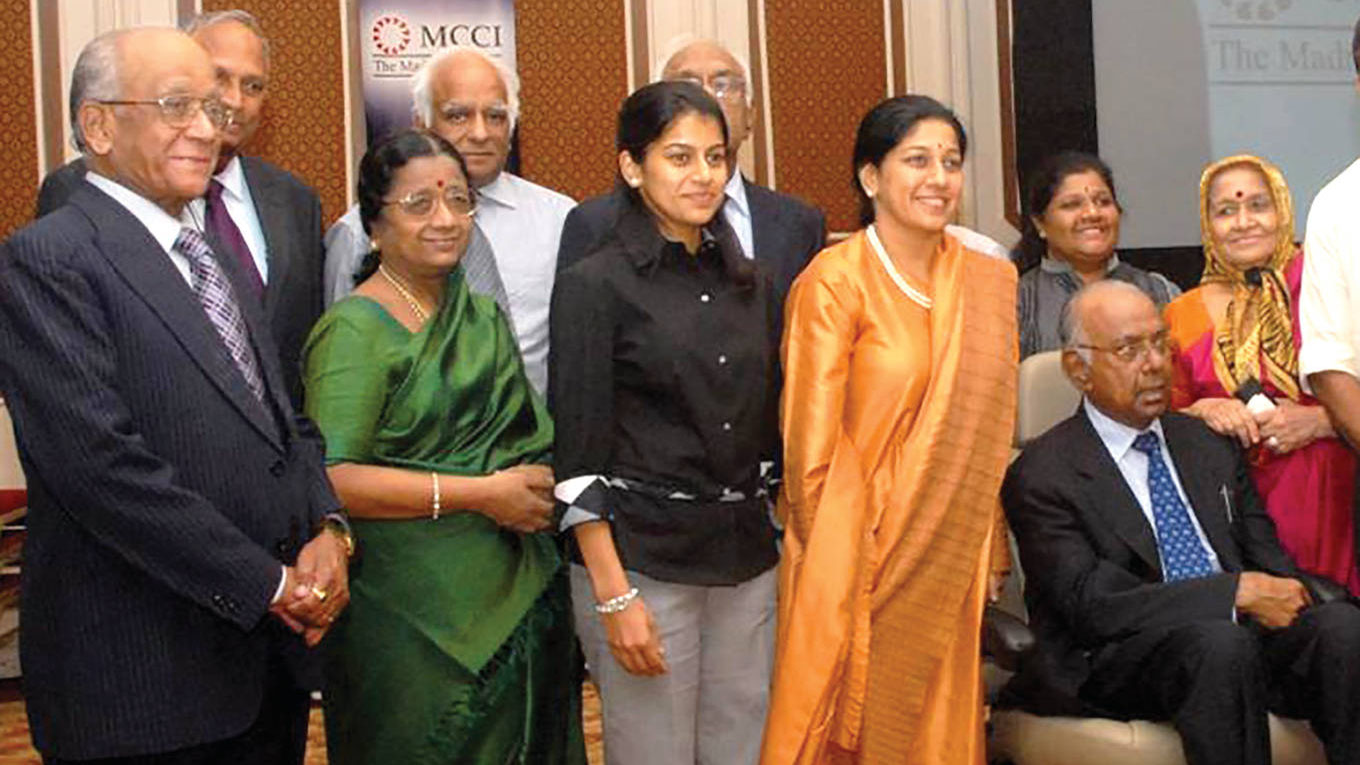-
The NCLAT order clearly indicates that there can be no room for any expectation in a family company that all members would get to enjoy the benefits of management equally, unless such an agreement existed between them, giving rise to a legal right to enforce
What is this case all about? Shankar Sundaram alleged that the late Sivasailam and Krishnamoorthy, the two sons of the founder Anantharamakrishnan, had taken unfair control of the entire group to the exclusion of the other shareholders (mainly himself). According to him, the two enjoyed excessively the fruits of the office of directorship to which they appointed themselves. Though the Amalgamations Ltd has over 40 subsidiaries, Shankar Sundaram felt that it was run as a single economic unit. This had impacted the functioning of these units, he argued.
What did Shankar Sundaram seek? He wanted the following, among other things.
• Amalgamations Ltd, a closely held company, should be treated as a quasi-partnership firm.
• A board seat in one of the profit-making companies since he holds a 10 per cent share in Amalgamations Ltd, the holding company.
• A direction to buy out his stake in Amalgamations Ltd at a fair market value.
• Fair treatment in terms of sharing benefits and management role in the group firms, since he holds 10 per cent share in Amalgamations Ltd, the holding company.
Both sides enlisted the services of top corporate lawyers to argue their cases before NCLAT. Krishnan Srinivasan, senior advocate, appeared for Amalgamations Ltd, while K. Ravi represented Shankar Sundaram before NCLAT.
High profile cases
The corporate world in India has seen some intense debate involving high profile names and entities in the recent past. The issue of exit and the valuation problems that arise in the wake of such disputes came under lens in the case of SP Group (Cyrus Mistry) and Tata Sons (P) Ltd, as well as in the case of Valli Arunachalam and Ambadi Investments Ltd (the holding company of Murugappa group).
Read against these backdrops, the judgement in Shankar Sundaram case against Amalgamations Ltd has larger implications to the corporate world at large. No doubt, the background for the case in this instance could be found in the internecine quarrel arising out of additions to membership (either through inheritance or marriage) in a business family. Yet, this issue assumes larger implications, if one views it from the prism of minority shareholders’ rights. With a 10 per cent shareholding in Amalgamations Ltd, Shankar Sundaram sought an equal treatment vis-a-vis other shareholders in terms of benefits and management role.
Corporate observers don’t miss the similarity between this case filed by Shankar Sundaram against Amalgamations Ltd and the one launched by Valli Arunachalam against the holding company of the Murugappa group. In both the cases, the appellants demanded fair treatment, board representation and even buy-out of shares. Fortunately, Valli Arunachalam and the Murugappa family have chosen to go for an out-of-court settlement. Yet, the judgement in this instant could have larger implications well beyond family business to the rights of minority shareholders.
What does the judgement say? For one, the NCLAT order clearly indicates that there can be no room for any expectation in a family company that all members would get to enjoy the benefits of management equally, unless such an agreement existed between them, giving rise to a legal right to enforce. Shankar Sundaram only inherited his shares after the enterprise was set up and was steaming along.
-

Daughter Mallika Srinivasan with her father A. Sivasailam
As such, he had no vested right to claim a role in the management and cannot seek relief in equity for the same, the order said. “We are of the view that the principles of quasi-partnership and legitimate expectation, if at all applicable, can be invoked only when there is an agreement or an understanding for a joint management or a specific promise for board representation at the time of incorporation or inducement for investment in the company, which in the present facts, admittedly do not arise. …… Be that as it may, a family held company cannot be ipso facto treated as a quasi-partnership. There was no pre-existing partnership prior to incorporation of the company (read Amalgamations Ltd) nor was there any existence of promise to offer directorship to any who had become a shareholder only by inheritance and not by inducement,” the order said. “It is only when two or more people jointly set up a business and co-exist in a spirit of partnership would such an expectation have legitimacy. The mere fact of a private company having only family members as shareholders cannot be equated to a partnership or a joint ownership of assets like a HUF,” it added.
The expectation of an entitlement clearly requires a pre-existing agreement or arrangement. The law, if one were to go by the NCLAT pronouncement, would not address the absence of the same and the rule of oppression cannot be invoked to legitimise the grievance. Clearly, NCLAT did not see any merit in the argument of Shankar Sundaram, who became a shareholder only in Amalgamations Ltd by “inheritance and not by inducement.”
NCLAT also rejected Shankar Sundaram’s plea for buying out his 10 per cent stake in Amalgamations Ltd. It is clear that a shareholder cannot seek an automatic exit and enforce a share buyout, as it may happen in a partnership; and “only when there is a case of complete deadlock in the company on account of lack of probity in the management of the company and there is no scope of efficiently running the company as a commercial concern, there would arise a case for winding up on just and equitable ground,” the order said. Neither Amalgamations Ltd nor its subsidiaries are in deadlock positions.
The verdict has clearly stated that the rights of the shareholder encompass voting in a meeting and receiving the dividends when declared by the company. However, this right doesn’t extend to an automatic appointment as a director or be paid a remuneration, the order made it clear. As such, a shareholder not getting to hold any office of profit unlike some of the other members of the family would not amount to an oppression of a minority shareholder. The big take away from the NCLAT order is that being a shareholder does not provide one any right to an automatic appointment to enjoy the fruits of office.
-
The mere fact of a private company having only family members as shareholders cannot be equated to a partnership or a joint ownership of assets like a HUF
The NCLAT rejected the demand of Shankar Sundaram to lift the corporate veil of the subsidiaries. It took the view that the petitioner was only a shareholder of the holding company and had no shareholding in the subsidiaries where he alleged mismanagement and oppression.
While the Amalgamation group has close to fifty entities, the profits of just three of them -- Simpson & Co Ltd, Tractors and Farm Equipment Ltd and Tafe Motors and Tractors Ltd -- constitute a lion’s share of the group’s profits. The structure of the group is that the holding company receives only the dividends from the operating companies which amount to a fraction of the profits of the operating companies.
“Accountants may jump and claim that with the consolidation of the accounts made mandatory this will not be an issue. Though accounts are consolidated, dividends can be distributed only out of the cash actually held by the holding company and if the subsidiaries do not distribute their profits, the holding company will have nothing to distribute,” said V. Ranganathan, former director, E&Y.
According to Ranganathan, the key takeaways of the NCLAT judgement are:
• Family members who inherit shares cannot seek parity through the provisions of law. There can be disparity in the way the benefits of office are distributed and such discrimination doesn’t constitute oppression.
• A family company needs a charter to settle the rights inter-se the members who are shareholders and cannot seek the refuge of the law or the principle of equity.
• Most family disputes arise in a generation later than the one that started the enterprise and, therefore, the claim that the family is like a ship jointly steered does not wash!
The NCLAT order may yet be contested in the Supreme Court. Nonetheless, it is dissected thoroughly in the corporate world as it could hold a clue or two to the resolution of disputes elsewhere in other family businesses.
-

The Amalgamations group has close to fifty entities
In an evolving business world where assorted factors trigger a constant change in the ownership dynamics, it is necessary to provide a practical solution to the minority issues within the ambit of regulation without going through an elaborate legal process.
Will Shankar Sundaram move the Supreme Court against NCLAT order? Lawyers seldom reconcile to a loss when an appeal is possible as Ranganathan points out. What can be surmised, however, is that Shankar Sundaram appears to be the odd-man-out in the Amalgamations family. Can there be a prudent way out?
The subsidiaries can pay higher dividends to the holding company. That may not however translate into higher monetary gains to Shankar Sundaram who holds 10 per cent shares in the holding company. That is why he has sought board positions in subsidiaries. Will the warring parties sit across the table and create a new chapter in reconciliation?
After all, the Murugappa group has chosen the reconciliation route to paper over its differences with the dissenting female member of the family. Is a similar thing possible in this instance? Well, that requires setting aside the pride and prejudice.




































